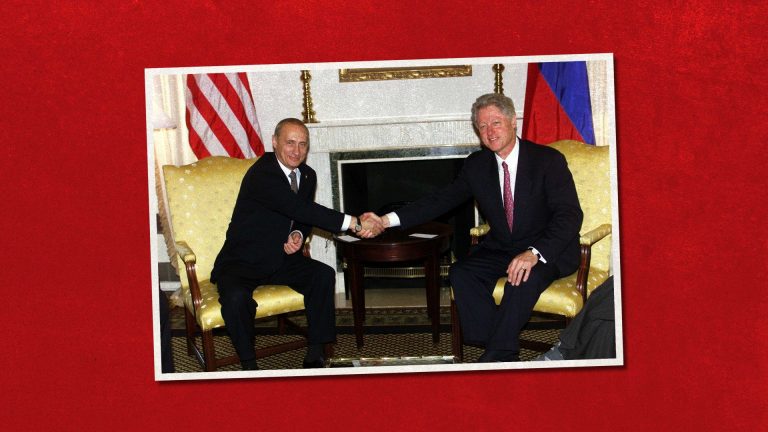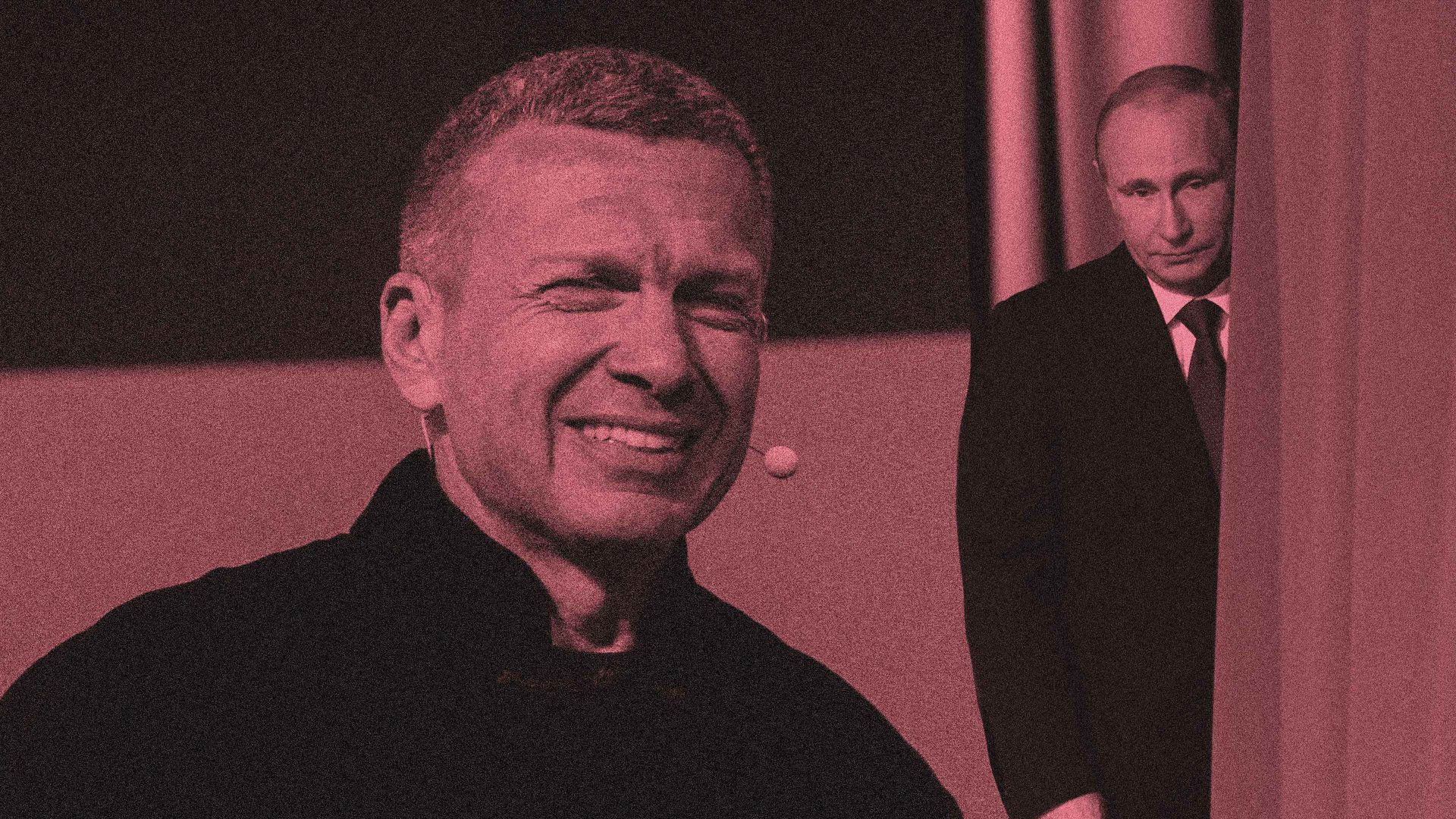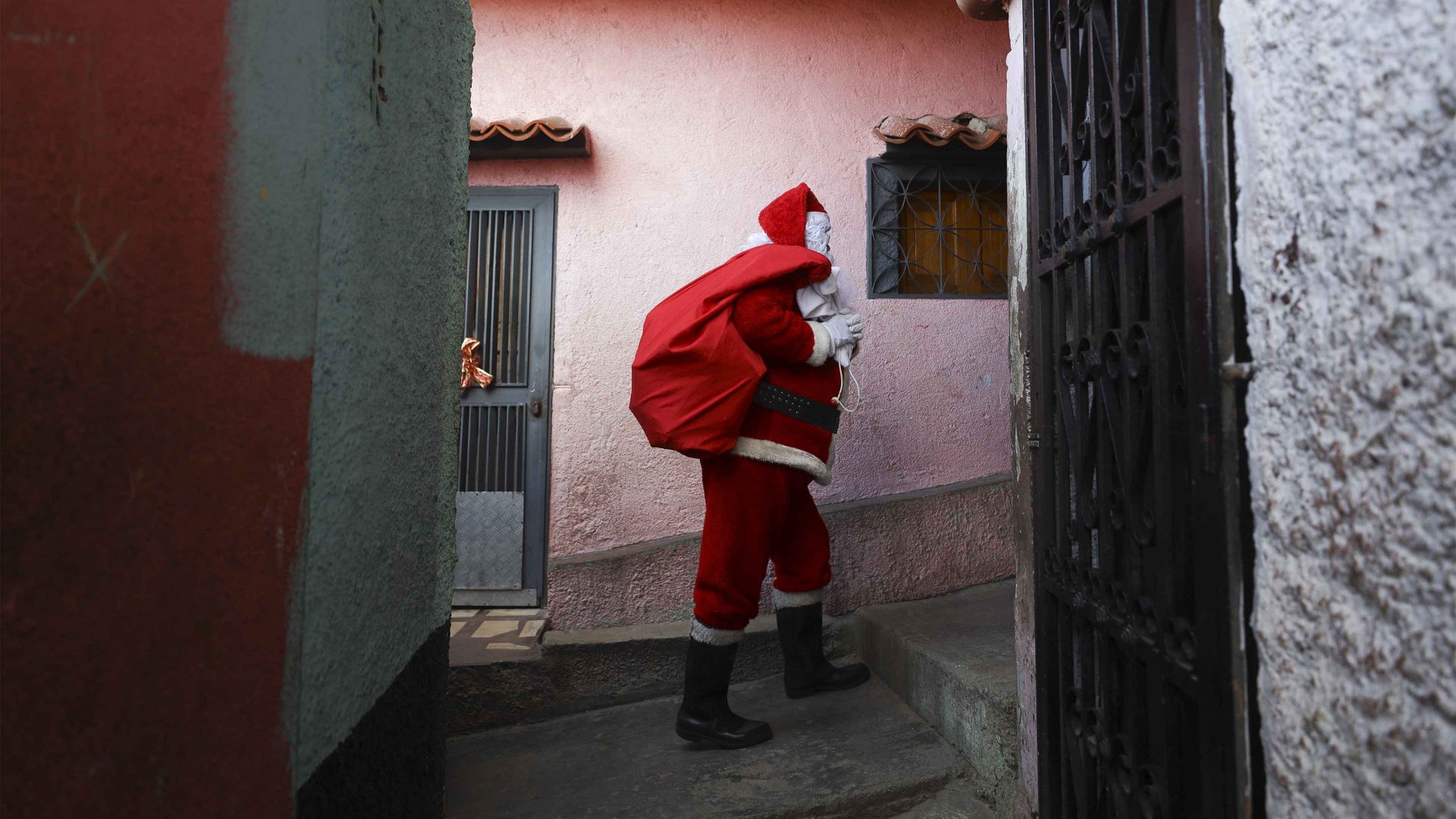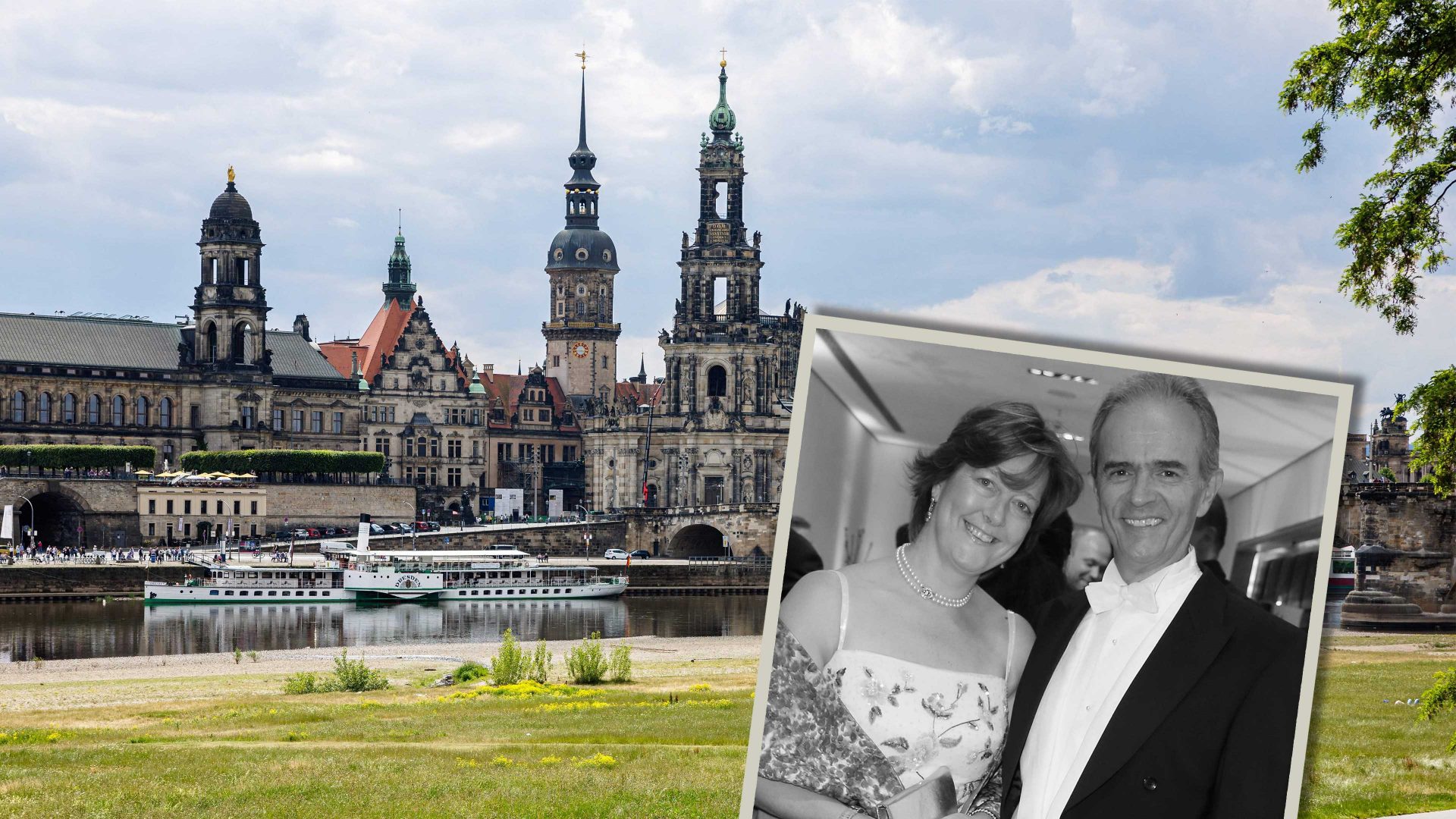When the Slovak prime minister Robert Fico, met Putin, he was offering himself up to be used as a propaganda tool. “Sometimes I feel that within the European Union, we’re like a frog at the bottom of a well, unable to see the wider world. But the world is very different,” Fico remarked as he sat down with the Russian president, their third meeting in less than a year. The two were in Beijing for events marking the end of the second world war in the Pacific. The only EU leader in attendance, Fico marched alongside Putin, North Korean leader Kim Jong-un, and China’s Xi Jinping.
His criticism of the EU and Ukraine was then picked up and amplified by Russia’s highly active state media apparatus, which acts as little more than a cheerleader for the Kremlin. Fico even gave an interview to Olga Skabeyeva, one of Russia’s most prominent television propagandists, on Rossiya 1’s flagship programme 60 Minutes.
The Slovak public is no stranger to Russian propaganda and disinformation operations in which Fico and many members of his ruling coalition participate. Earlier this year, the New Security Threats Institute reported that the Russian embassy in Bratislava was the most active Russian diplomatic mission in Europe when it came to social media engagement. “Its posts frequently disseminate misleading and manipulative content, consistently promoting longstanding Kremlin narratives,” the NGO said on its website.
Following Russia’s invasion of Ukraine, the EU sanctioned 27 Russian media outlets, banning their broadcasts and websites across member states. Yet a report by the UK-based Institute for Strategic Dialogue found Slovakia’s enforcement was woefully weak.
Maksym Yali is a Kyiv-based expert on Russian propaganda and disinformation, and I’ve known him for three years, through numerous reporting trips to war-torn Ukraine. Recently, I sat down with him for an in-depth interview on Russian disinformation, especially on TV.
Yali is uniquely placed to explain it. He was a regular guest on Moscow’s notorious propaganda talk shows along with Skabeyeva and the infamous Vladimir Solovyov. He defended Ukraine at a time when that was still allowed on Russian airwaves.
A native of Mariupol, Yali now lives in a part of Kyiv that has come under repeated Russian drone attacks. When we met for lunch at a Georgian restaurant, the city felt calm – but everything changes when darkness falls. Between 2017 and 2019, he was a frequent flyer to Moscow, appearing on Russian television. “In 2017, many in the Donetsk region still felt more Soviet than Ukrainian. When they saw someone from their city on Moscow TV, they thought: ‘That’s our guy.’ They trusted me. Later, they realised I was telling the truth,” Yali explains.
Suggested Reading


When I unpacked the Putin papers
During his appearances, he faced repeated provocations, some escalating to the point where the police were called. One confrontation nearly turned physical when a former separatist special forces soldier was put up as Yali’s opponent. Yali later realised the scene had probably been staged to provoke and thereby discredit him. In 2018 he was blacklisted after he disclosed live on air that the Russian Orthodox church blesses soldiers who kill Ukrainians.
In his final show, one of the other guests called him a “kid”, and he threatened to retaliate. That clip gained millions of views in Ukraine. “The appearances were full of adrenaline. Later I realised it was all just theatre, attendees playing assigned roles,” he says.
“The shouting, the interruptions, the constant conflict… it felt like a nightmare,” he says. “When I got back to Kyiv, it took me three or four days to recover. I was completely drained.” He remembers his first encounter with Solovyov vividly. “I must admit, he’s educated, knows his history, and as a propagandist, he’s certainly talented. It was a challenge.”
Solovyov personally selects his guests, and since the invasion he has become a dominating voice. He is very wealthy and very close to the Kremlin. “It’s essentially Putin’s show,” says Yali, who is now a professor at the National Aviation University. “You need skills and knowledge to manipulate. Propaganda works by including some truth. And he’s a talented manipulator.
“Russian propaganda has a long tradition and strong mechanisms. That’s why the Soviet Union lasted 70 years: thanks to the KGB and strict information control,” he says. “It’s like in Orwell’s Nineteen Eighty-Four, where war is peace and truth is a lie.”
Branislav Ondrásik reports for the Slovak daily SME



